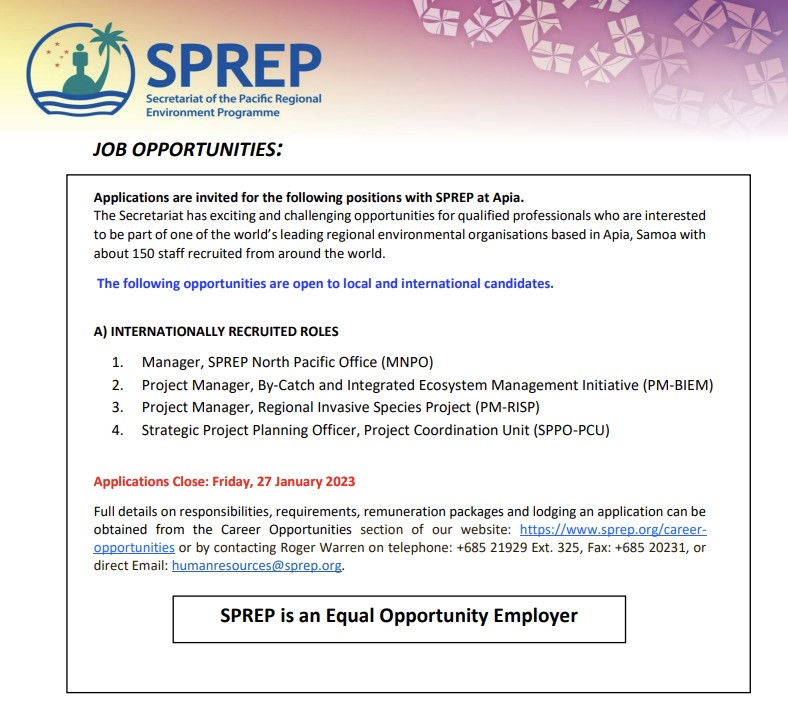Sowing seeds for an organic future in the Pacific island region
- Admin
- Dec 27, 2022
- 4 min read

By Pacific Island Times News Staff
Traditional farming practices throughout the Blue Pacific are intuitively aligned with those of organic agriculture practices.
As the organic food industry continues to grow internationally at an unprecedented rate, it possesses huge potential for a significant contribution toward the sustainable development of the region, while also offering ample opportunity for Pacific businesses.
Produce and products labelled "organic" are on sale in nearly every grocery store worldwide, but what does organic actually mean? The word "organic" refers to the way agricultural products such as fruit, vegetables and grain, are grown and processed, with organic food production based on a system of natural farming that maintains and replenishes soil fertility without the persistent use of toxic pesticides or synthetic fertilizers.
Organic agriculture combines tradition, innovation, and science to benefit the shared environment and promote fair relationships and a good quality of life for all involved.
Over the past decade, the organic food industry has grown at an ever-accelerating rate.
In 2021, the global organic food and beverages market size was valued at $188.35 billion, with this figure projected to increase at a compound annual growth rate of 13 percent from 2022 through to 2030.
One of the primary factors driving this market expansion has been the growing awareness of the health benefits associated with the consumption of organic products.
ADVERTISEMENT
Much of this shift in consumer behavior can be attributed to the Covid-19 pandemic, which caused monumental change in every facet of society. Global management consultancy firm McKinsey & Co found that in the wake of the pandemic, consumers renewed their focus on health, shifting and re-prioritizing their purchases to spend more on groceries and organic goods.
This steadily growing global consumer demand for organic commodities provides a strong opportunity for farmers and exporters throughout the Blue Pacific to benefit from this expanding international market.
The concept of organic produce itself is not a new one for the Blue Pacific region. For generations, the indigenous people of the Pacific have acknowledged the land as their lifeblood, fundamental to cultural identity and way of life.
With regenerative and sustainable agriculture as a core pillar of indigenous knowledge, traditional farming practices throughout the Blue Pacific are intuitively aligned with those of organic agriculture practices.
Today, many communities still have agriculture systems based on age-old practices, which ensure environmental integrity and do not use chemical inputs.
Despite this strong alignment in agricultural practice, for products to be exported to overseas markets as "organic" they must be certified. It is only through organic certification that consumers can be sure that what they are buying meets the required standards.
Throughout the Pacific, there are several internationally recognized organic certification bodies, which have been crucial in allowing Pacific organic producers access to international markets.
The majority of the certifying agencies working in the Pacific are based in Australia or New Zealand, with the exception of the Organic Crop Improvement Association from the USA and ECOCERT from France. The Pacific also has its own organic certification scheme known as "Organic Pasifika’"
According to market analysis by the Pacific Organic & Ethical Trade Community, the main crops currently organically certified and exported from the Pacific region include cocoa, coconut meal, coffee, dried fruits, honey, noni fruit (morinda catrifolia), papaya, vanilla, ginger, nuts and spices, with the main international export markets for these products being Australia and New Zealand, due to their proximity, as well as Japan, Korea, North America and the European Union.
A business currently harnessing the power of organic is Niue Honey. Having recently worked with Pacific Trade Invest (PTI) New Zealand to promote their certified organic and unpasteurised honey into the New Zealand market, Niue Honey is the most recent recipient of two first-in-class gold medals from the UK’s 85th National Honey Show, where they were also named Best International Honey/
Closer to home, domestic markets for certified organic products are still in their infancy, with organic products commonly sold as conventional ones, and often without premium prices or any acknowledgement of the organic status of the product.
Opportunities within the Pacific’s tourism sector continue to be explored, however, with the hope that a focus on connecting small holder organic farmers directly to tourism and hospitality providers will contribute to a thriving market for organic local produce and Pacific cuisine.
With the global organic food market expected to exceed $484 billion by 2030, the projected impact of the industry is significant. Organic agriculture not only provides important opportunities for Pacific island countries to export high-value, low-volume crops to niche markets, but also brings with it the symbiotic benefits of livelihoods bettered through access to trade, improved local and regional food security, reduced reliance on imported food products, and the promotion of diversified and sustainable farming systems required to face the global climate crisis, among many more.
By embracing the global shift toward organic produce and the associated agricultural practices, the Blue Pacific can sow the seeds of tomorrow, today. (PTI)
Subscribe to
our digital
monthly edition





Comments